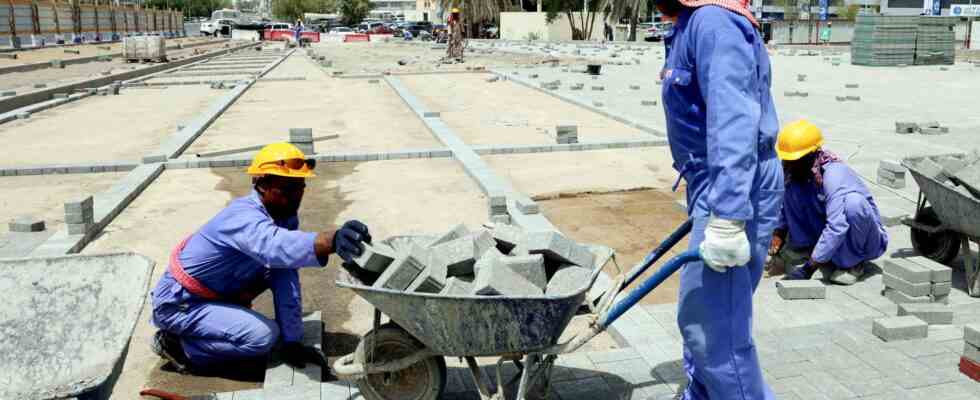Status: 08/22/2022 11:11 a.m
A few months before the start of the soccer World Cup, more than 60 guest workers were arrested in Qatar. They had demonstrated because they had not received any wages for months. Some of those arrested were apparently deported from the country.
Three months before the start of the soccer World Cup, host country Qatar arrested at least 60 foreign workers who were protesting against non-payment of wages. Some of those arrested had been expelled, said the consulting firm Equidem Research.
The arrests cast doubt on Qatar’s pledge to improve treatment of the country’s many foreign workers, said chief executive Musutafa Kadri.
According to the AP news agency, the government of the Arab country said a number of demonstrators had been arrested for violating public safety laws. No further information on the arrests or possible deportations was made public.
Demo in front of the employer’s offices
Video footage released online showed about 60 participants in the August 14 protest outside the Doha offices of Al Bandary International Group, a conglomerate that includes construction, real estate, hotels, restaurants and other businesses. According to Equidem, some of the demonstrators had not received a wage for seven months.
The Qatari government said the company actually did not pay wages. The Department of Labor will now step in and make all the failed payments.
The emirate on the Persian Gulf is always in the headlines because of the exploitation of migrants. Almost 90 percent of Qatar’s 2.5 million inhabitants are foreigners, most of whom come from poorer countries such as Bangladesh, Nepal or India. Almost half of them work on construction sites, many of them related to the World Cup.
Thousands of dead guest workers
Last year, the British newspaper The Guardian reported that 6,500 foreign workers had died since the emirate was awarded the contract to host the World Cup in 2010.
Qatar launched a reform program in 2020 to improve working conditions for migrants. For example, the so-called kafala employment system, which allowed employers to decide, among other things, whether workers were allowed to leave the country, was abolished.
The country also introduced a monthly minimum wage of 1,000 riyals ($300). Critics complain, however, that commitments have only partially been implemented. Foreign workers needed more support, especially in the dispute over outstanding wage payments.

